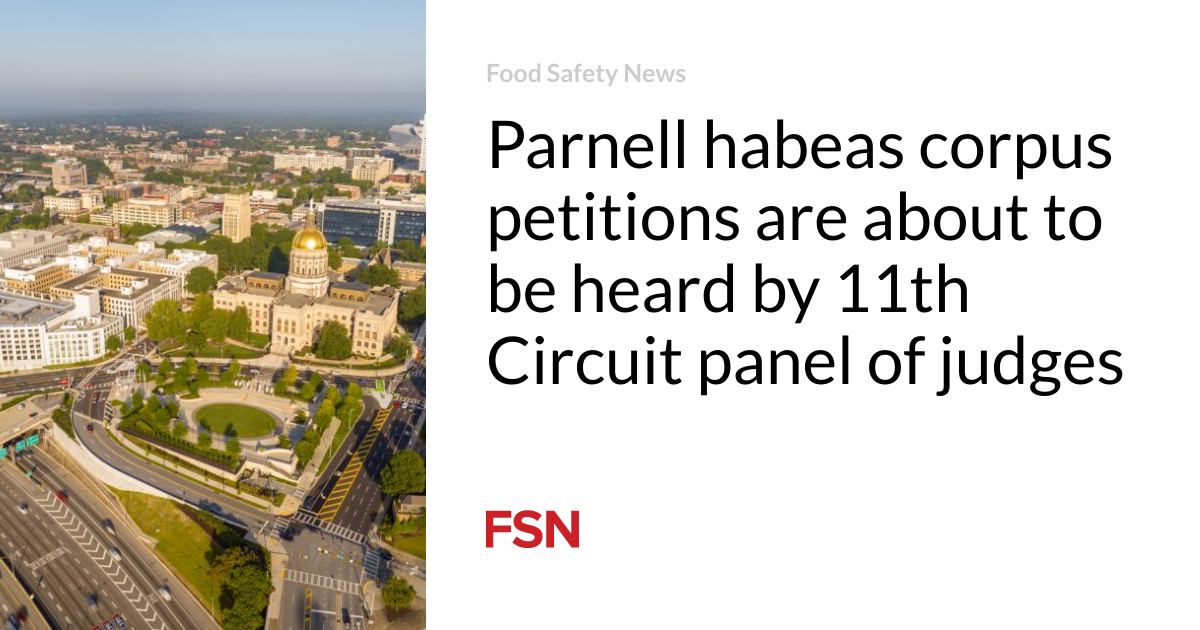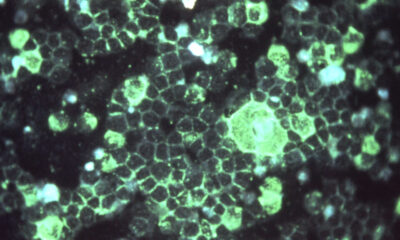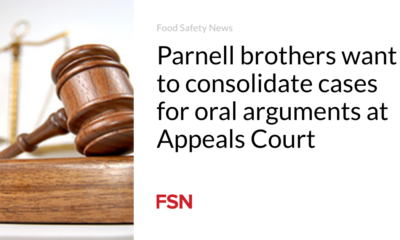Food
Parnell habeas corpus petitions about to be heard by 11th Circuit panel of judges

The 11th Circuit Court of Appeals was set to hear Stewart Parnell’s five-year habeas corpus motion, but withdrew it.
The second highest court in the country promises to reassign the Stewart Parnell case soon.
The Atlanta court appears ready to finalize the habeas petitions of Stewart Parnell and his brother Michael Parnell. Both filed so-called Motion 2255 actions to challenge their convictions and sentences for their roles in a deadly Salmonella outbreak from peanut butter products.
In the five years that the brothers have been under federal Writs of Habeas Corpus, the proceedings have not given them much encouragement. That may change, however, as petitions for both men will likely soon be heard by the U.S. Court of Appeals for the 11th Circuit.
Stewart and Michael Parnell were convicted in 2014 during a jury trial in Albany, Georgia. Both were associated with the now-defunct Peanut Corporation of America, which was found responsible for the 2008-2009 multi-state Salmonella outbreak that sickened hundreds of people and killed several.
For their multiple felony convictions, Steward Parnell was sentenced to 28 years in prison and Michael Parnell to 20 years.
The Parnells filed petitions for federal Writs of Habeas Corpus under 18 USC §2254, which is intended for those in federal custody. The Latin ‘habeas corpus’ means ‘you have the body’. A petition for the writ alleges that a person is being held against their constitutional rights. A Habeas Corpus petition alleges that the arrest, sentence, or trial violated constitutional law, making imprisonment illegal.
Ineffective assistance of trial counsel is the most common issue cited in Habeas Corpus petitions, and both Parnell brothers have made that claim.
Stewart was the first to file on September 6, 2019. His lawyers wrote: “Stewart Parnell owned the Peanut Corporation of America (“PCA”), a peanut processing plant in Blakely, Georgia – a small town in southwest Georgia, 48 miles southwest of Albany.
“In 2014, Mr. Parnell was convicted of conspiracy, introducing adulterated and misbranded foods into interstate commerce, interstate transportation fraud, wire fraud, and obstruction of justice stemming from a salmonella outbreak linked to PCA. After an unsuccessful direct appeal, United States v. Parnell, 723 Fed. Approx. 745 (11th Cir. 2018), Mr. Parnell now shows that his trial attorney provided ineffective assistance by failing to move for a change of venue or by striking jurors who were aware of allegations of deaths resulting from the salmonella outbreak.”
Michael Parnell filed his Habeus Corpus petition about a month later.
After filing their petitions, the Parnells each scored a victory when the magistrate judge decided that the issues raised were worthy of an evidentiary hearing. Judge Thomas Q. Langstaff for the Middle District of Georgia presided over hearings in late May 2021 at the same courthouse in Albany, GA where the Parnells were sentenced.
Federal marshals brought the Parnells to the evidentiary hearings, and they were able to exchange witnesses and show lists. But after it was over, Langstaff, in his recommendation to the Middle District of Georgia, ruled against their petitions, and the judge, W. Louis Sands, agreed.
The final denial by the Middle District of Georgia left an appeal to the 11th Circuit as the next option. Stewart Parnell’s petition arrived first and cleared a major hurdle by winning a motion “for a Certificate of Eligibility.”
Although “partially allowed,” U.S. Circuit Judge Andrew L. Brasher allowed Stewart Parnell to appeal on two crucial issues:
1.) whether the individual court erred in determining that Parnell could not establish a presumption of jury bias based on adverse pretrial publicity under Skilling v. United States; And
2.) whether the showing of alleged jury bias under Skilling results in a finding of both prongs of an ineffective assistance of counsel claim based on counsel’s inability to move to a change of venue.
With Rouse & Copeland in Savannah, GA, Amy Copeland is Stewart Parnell’s attorney for the Habeus Corpus petition. Her next deadline for filing appellant’s petition is June 26, about two weeks away.
Michael Parnell’s appeal to the 11th Circuit was filed May 26. Two Virginia attorneys, Elliott M. Harding and William J. Dinkin, are representing him.
Before Michael Parnell took his petition to the Atlanta District Court, he prevailed when he had his conviction history corrected by the Middle District. At the suggestion of his Bureau of Prisons (BOP) case manager, Parnell’s introduction of adulterated food violations was corrected to “Introduction of Misbranded Food.”
It was November 10, 2008, when the CDCs PulseNet Staff first noticed a small and highly distributed multi-state cluster of 13 Salmonella Typhimurium isolates with an unusual DNA fingerprint or pulsed field gel electrophoresis (PFGE) pattern reported from 12 states. On April 20, 2009, 714 people in 46 states were confirmed to have an outbreak of Salmonella Typhimurium associated with the Peanut Corporation of America (PCA) facility in Blakely, Georgia. Nine deaths were a direct result of the outbreak, according to the Centers for Disease Control and Prevention.
In 2013, criminal charges related to the outbreak were filed against five PCA managers and executives. Only the Parnell brothers remain in federal custody.
(To sign up for a free subscription to Food Safety News,Click here)













